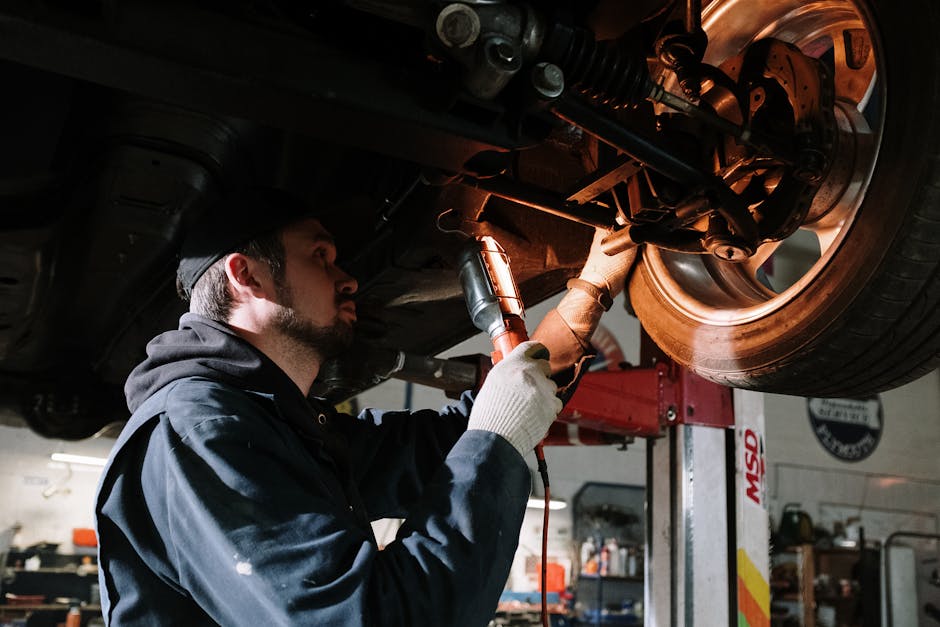Hyundai & Kia Recall: 300K+ Cars Affected by Melting Fuel Tank Risk

Hyundai & Kia Recall: 300K+ Cars Affected by Melting Fuel Tank Risk

A significant safety alert has been issued by Hyundai and Kia, initiating a widespread recall affecting over 300,000 vehicles across the United States. This urgent action addresses a critical defect involving a component within the fuel pump assembly, which poses a serious risk of melting. Such an issue can lead to dangerous fuel leaks and, consequently, a heightened risk of fire. Owners of certain Hyundai Santa Fe, Kia Sorento, and Kia Sportage models from various model years are urged to pay close attention to this development. The potential for a fuel leak is not just an inconvenience; it represents a substantial safety hazard that requires immediate attention from both vehicle owners and the manufacturers. This article will delve into the specifics of this concerning recall.
The concerning recall: understanding the core issue
At the heart of Hyundai and Kia’s latest recall lies a worrying defect within the fuel pump’s fuel-level sensor carrier. Investigations have revealed that this specific component is susceptible to excessive heat, causing it to melt. When this melting occurs, it compromises the integrity of the fuel pump assembly, leading to a critical failure: a fuel leak. The presence of leaking fuel, particularly in proximity to hot engine components or an ignition source, drastically increases the risk of a vehicle fire. This is not merely a minor mechanical glitch but a fundamental safety flaw that could have catastrophic consequences for drivers and passengers. The sheer scale of the recall, encompassing hundreds of thousands of vehicles, underscores the seriousness with which this issue is being treated by safety regulators and the manufacturers themselves.
Affected models and the recall scope
This widespread recall specifically targets particular SUV models from both Hyundai and Kia, impacting a substantial number of drivers. The affected vehicles primarily include certain model years of the Hyundai Santa Fe, Kia Sorento, and Kia Sportage. The total count of vehicles involved in this recall surpasses 300,000 units, making it one of the more significant safety actions undertaken by the two South Korean automakers recently. Owners of these models are strongly encouraged to verify if their specific vehicle is included in the recall. Manufacturers typically notify affected owners via mail, providing detailed instructions on the next steps to take. It is crucial to respond promptly to these notifications to ensure the safety of your vehicle and its occupants.
Below is a summary of the primary models and model years confirmed to be part of this recall:
| Manufacturer | Model | Model Years Affected | Approximate Number of Units (shared) |
|---|---|---|---|
| Hyundai | Santa Fe | 2017-2019 | Over 300,000 total |
| Kia | Sorento | 2017-2019 | |
| Kia | Sportage | 2017-2019 |
Safety implications and owner actions
The safety implications of a melting fuel pump component and a potential fuel leak are severe. Owners of affected vehicles may experience several warning signs that should not be ignored. These can include a distinct fuel odor both inside and outside the vehicle, visible signs of fuel leaking underneath the car, or the illumination of the “Check Engine” light on the dashboard. Ignoring these indicators could escalate the risk of a vehicle fire, endangering lives and property. If you own one of the affected models, the immediate and most critical action is to ascertain if your vehicle’s specific VIN (Vehicle Identification Number) is part of the recall. This can typically be done by visiting the manufacturer’s recall website or the National Highway Traffic Safety Administration (NHTSA) website. Once confirmed, contact your nearest authorized Hyundai or Kia dealership without delay to schedule an inspection and necessary repairs. The dealerships will inspect the fuel pump assembly and, if the defect is found, replace the affected components free of charge. It is imperative not to attempt any self-repairs, as handling fuel systems requires specialized knowledge and tools to ensure safety.
Beyond the immediate fix: long-term concerns and brand reputation
While the immediate focus is on repairing the affected vehicles, this recall also brings broader long-term concerns for both Hyundai and Kia, particularly regarding consumer trust and brand reputation. Both manufacturers have faced several high-profile recalls in recent years, addressing issues ranging from engine fires to braking problems. Each subsequent recall, especially those involving fire risks, chips away at consumer confidence and raises questions about quality control and manufacturing processes. For automotive brands, reputation is paramount, and consistent safety concerns can deter potential buyers, impacting future sales and market share. Beyond the immediate financial cost of repairs, there is the intangible cost of damaged public perception. This incident highlights the critical importance of rigorous material testing, design validation, and comprehensive quality assurance throughout the vehicle production cycle. Moving forward, Hyundai and Kia must demonstrate a steadfast commitment to proactive safety measures and transparent communication to rebuild and maintain the trust of their customer base.
The current recall initiated by Hyundai and Kia for over 300,000 vehicles due to a melting fuel pump component represents a significant safety concern. This defect can lead to dangerous fuel leaks and substantially increase the risk of vehicle fires. Affected models primarily include various model years of the Hyundai Santa Fe, Kia Sorento, and Kia Sportage. Owners are strongly advised to check their vehicle’s VIN immediately and contact an authorized dealership for inspection and free repair, paying close attention to warning signs like fuel odor or leaks. This situation underscores the critical need for manufacturers to prioritize stringent quality control and safety standards. For consumers, staying informed and acting swiftly on recall notices is paramount to ensuring vehicle safety and protecting lives. Both automakers now face the challenge of not only fixing the issue but also working to restore unwavering public confidence in their commitment to vehicle integrity.
No related posts
Image by: cottonbro studio
https://www.pexels.com/@cottonbro

